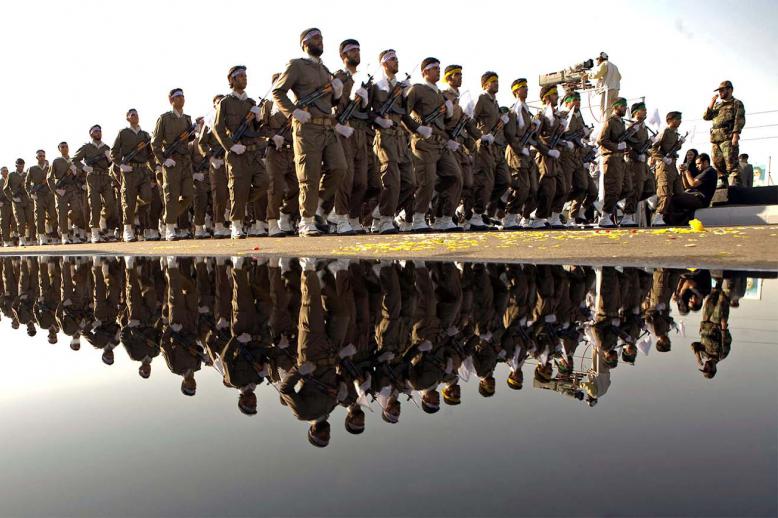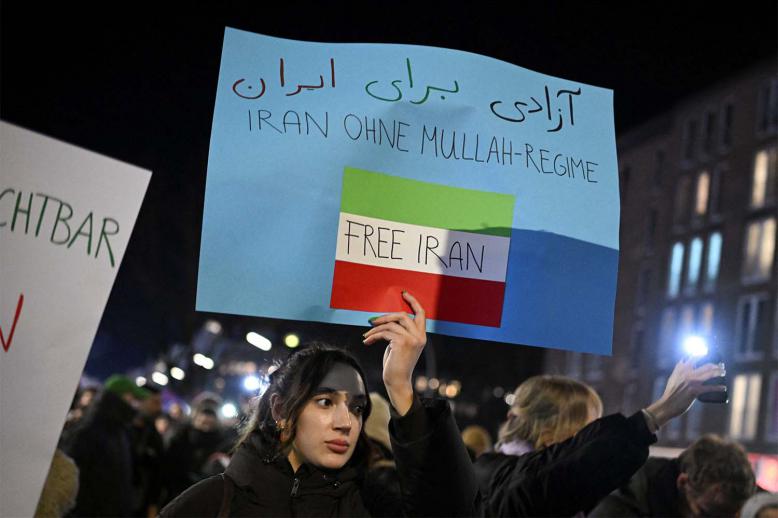Egypt and Ethiopia are bound together by geography; an outside mediator won’t change that
There is an irony in how negotiations over a dam billed as a renaissance for the African continent have devolved to the point where African nations are seeking Western mediation to help them resolve their political differences. Yet that is where years-long talks on the Grand Ethiopian Renaissance Dam have reached. The giant hydropower dam, years behind schedule and billions over budget, is being built on the Ethiopian Blue Nile, which feeds down into the waters that run through Egypt. When completed it will be the largest dam on the African continent and could revolutionize the availability of power in Ethiopia, where more than half the population live without electricity.
That is, if negotiations with Egypt and Sudan can be completed. The three countries have been in talks for years, but the issues with Egypt have been particularly acrimonious. Egypt is concerned that filing the reservoir will limit the Nile flow through the country, affecting agriculture, and is seeking legal guarantees on what would happen to water flow during a drought or crisis.
When talks broke down earlier this month, Egypt proposed an external mediator, either the United States or European countries. And on Tuesday, Cairo said Egypt, Ethiopia and Sudan will meet in Washington, though it did not say when. But eternal mediation is the wrong move, even if it seems like the right one in the short term.
Badly handled, there is no doubt the Renaissance Dam could have serious repercussions for Egypt, Ethiopia and for the region.
Agriculture is an enormous part of the economies of both countries. The United Nations estimates 30 percent of Egypt’s labor force is employed in agriculture and the sector accounts for 20 percent of the country’s exports. In Ethiopia, the numbers are starker: perhaps 85 percent of all working Ethiopians are in agriculture. With tens of millions reliant on agriculture, getting the politics of the Nile basin right is a matter of national security.
Small wonder then that Ethiopia and Egypt have talked up the possibility of conflict. This week Ethiopia’s prime minister, Abiy Ahmed, responded to veiled threats in Egyptian media, saying, “If there is a need to go to war, we could get millions readied.”
But conflict is in no one’s interests and frankly the wider region could do without it. Certainly, these are matters of national security and national development for all the countries involved. And it is precisely for those reason that a new relationship between the countries needs to be forged, not outside mediators brought in.
After all, this round of mediation is only the beginning. Filling the dam alone could take 15 years. That is to say nothing of what could happen during political instability or climate crises in that period or over the following century. Dealing with those issues will take patient diplomacy and legal frameworks; they cannot be solved by a one-time agreement decided from outside.
There is another reason why the dam has become a lightning rod for conflict. It has the ability to reshape the power politics of the region.
Egypt, long seen as the regional power, feels its ability to influence upstream countries is loosening. For Ethiopia, as the name given to the dam suggests, this is a national project, one that can reshape how Ethiopia sees itself. That creates a febrile atmosphere of competition.
The dam therefore is symptomatic of a larger change in relationships. But that is even more reason not to resort to external mediation. These changing relationships cannot be managed by one agreement; they have to be adjusted through new political understandings.
Viewed as a question of nationalism and national security, it is inevitable that the talk will turn to military action. But viewed as a chance to share expertise, to reform the agricultural sectors in both countries and to draw the two countries together, it presents an opportunity. There is much to share: Ethiopia will want to sell the electricity from the dam – indeed, it completed a feasibility study into selling to Egypt two years ago – and Egypt can offer expertise in agriculture.
The fact is that the promises politicians on both sides are making are unsustainable. The Ethiopians are promising everything will change while the Egyptians maintain nothing will.
But the scale of the dam means it will involve hard compromises. On the Egyptian side, reform of a bloated agricultural sector that has become too reliant on a certain level of river flow and not enough on technological advances; on the Ethiopian side, an acceptance that the maximum electricity generation can’t be reached immediately, and that the dam won't immediately alleviate all the problems of the country. The highland parts of the country will remain beyond the reach of power lines for the foreseeable future.
Indeed, an example from another, also deeply contested, region shows what is possible. In 1960, Pakistan and India signed the Indus Waters Treaty, governing how the waters of the Indus river system would be treated by both countries. The Indus river system is complex, with multiple rivers, deltas and tributaries, and flows through the contested north of the countries, through Kashmir itself, and into the Arabian Sea.
Yet the treaty has survived not merely decades, but wars between the two. The essential part is a commission that oversees the treaty and provides a means of arbitration of disputes. This takes the management of the sensitive waters out of the hands of politicians, who can’t use it for political point scoring.
The relationship between Egypt and Ethiopia, two African giants, is changing. Both are bound by geography to share the same river. Instead of seeking help from outsiders to assist them in making difficult decisions today, they should create legal treaties and impartial committees to govern difficult decisions tomorrow. In that way, the waters that flow from Ethiopia’s highlands through the heart of Egypt can bring both countries closer.
Faisal Al Yafai is currently writing a book on the Middle East and is a frequent commentator on international TV news networks. He has worked for news outlets such as The Guardian and the BBC, and reported on the Middle East, Eastern Europe, Asia and Africa.
Copyright: Syndication Bureau







